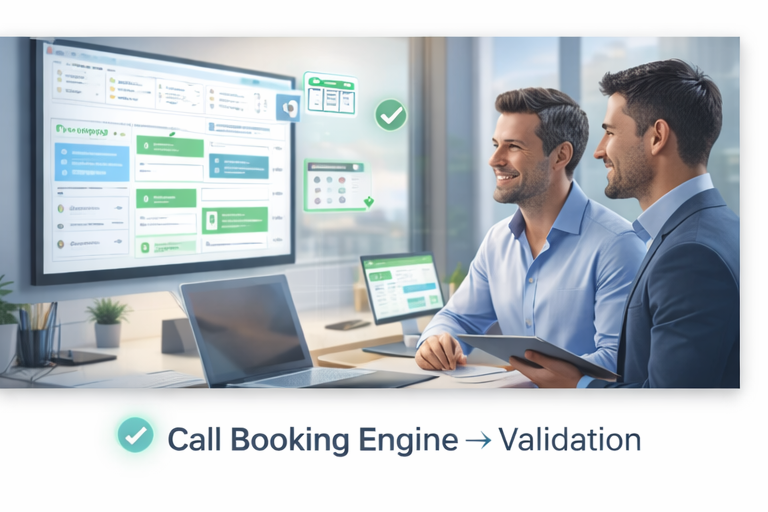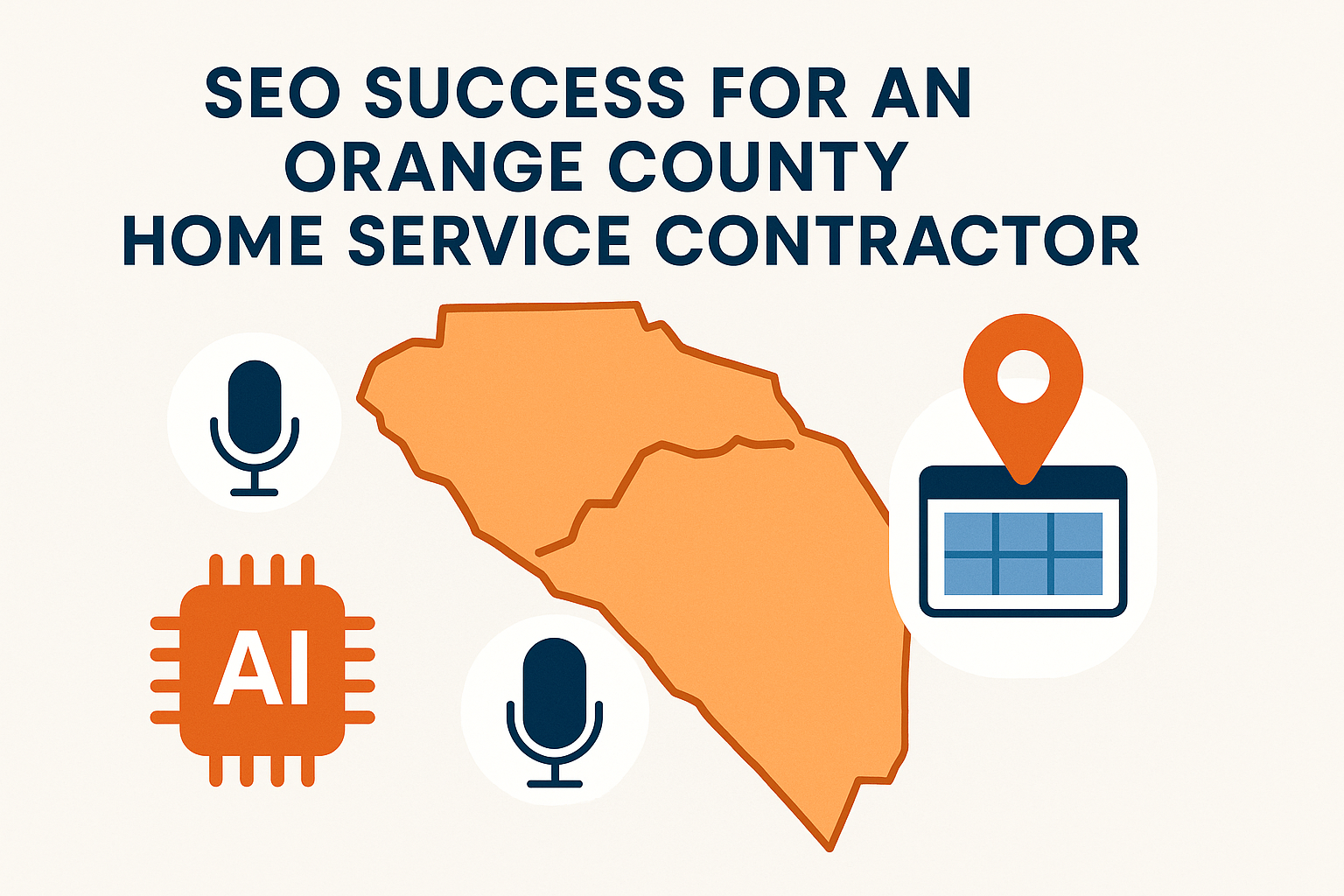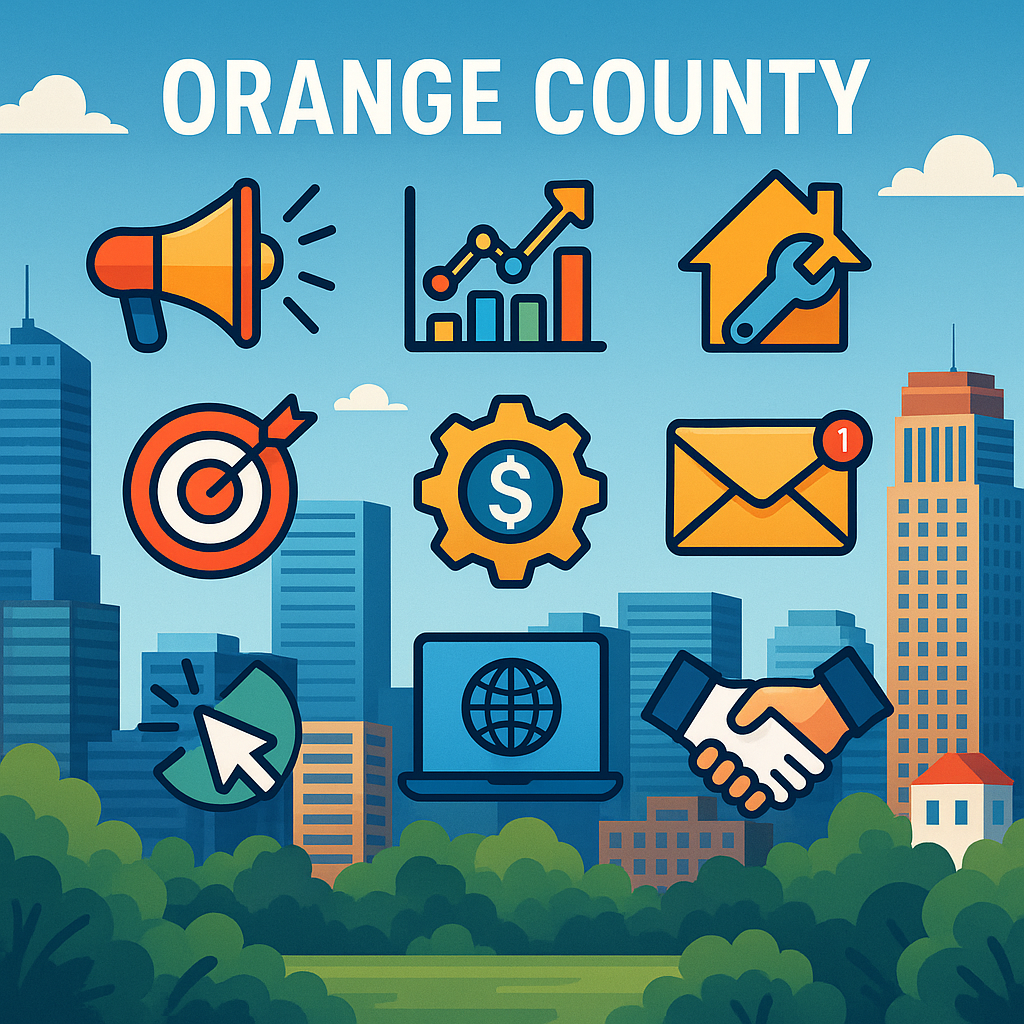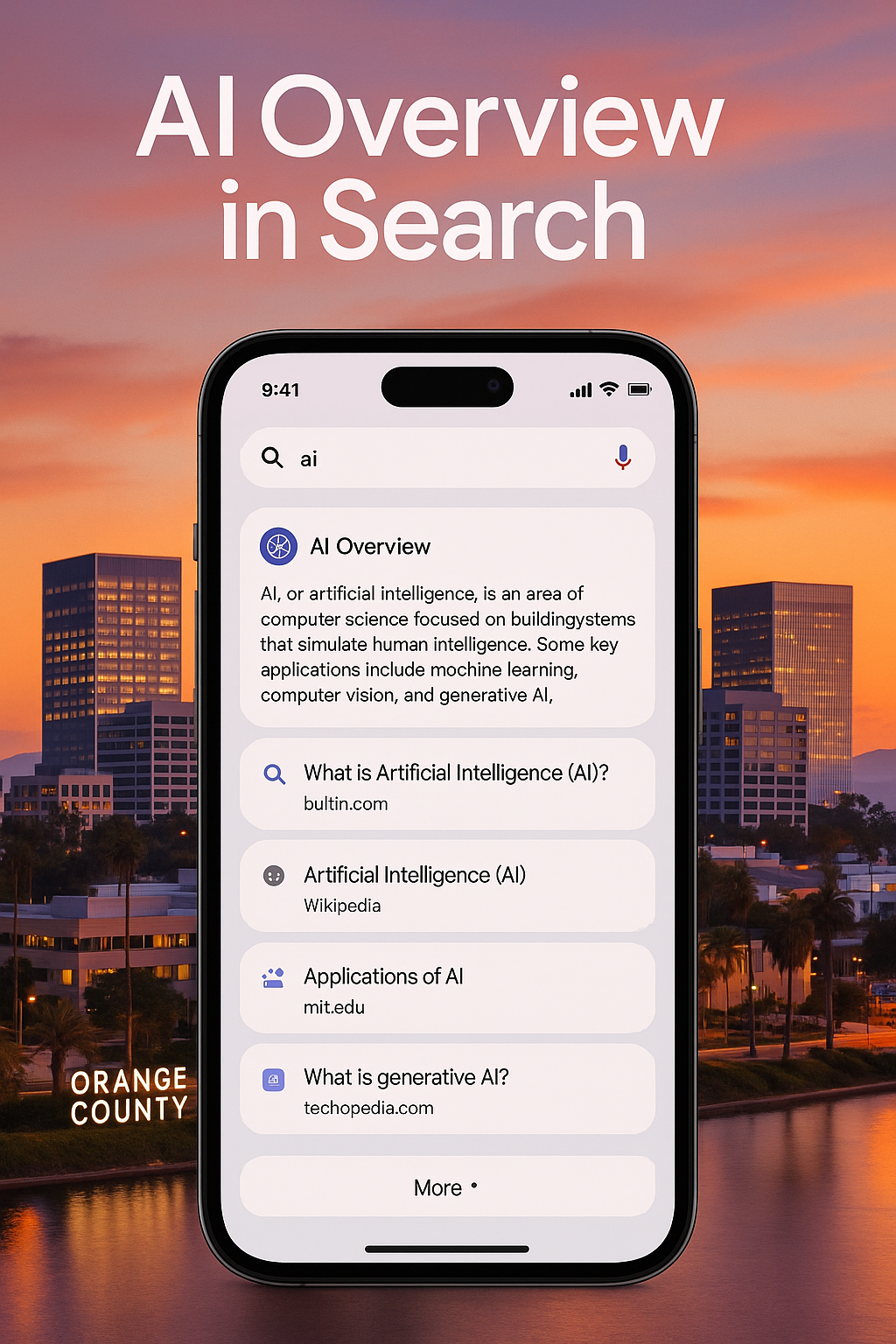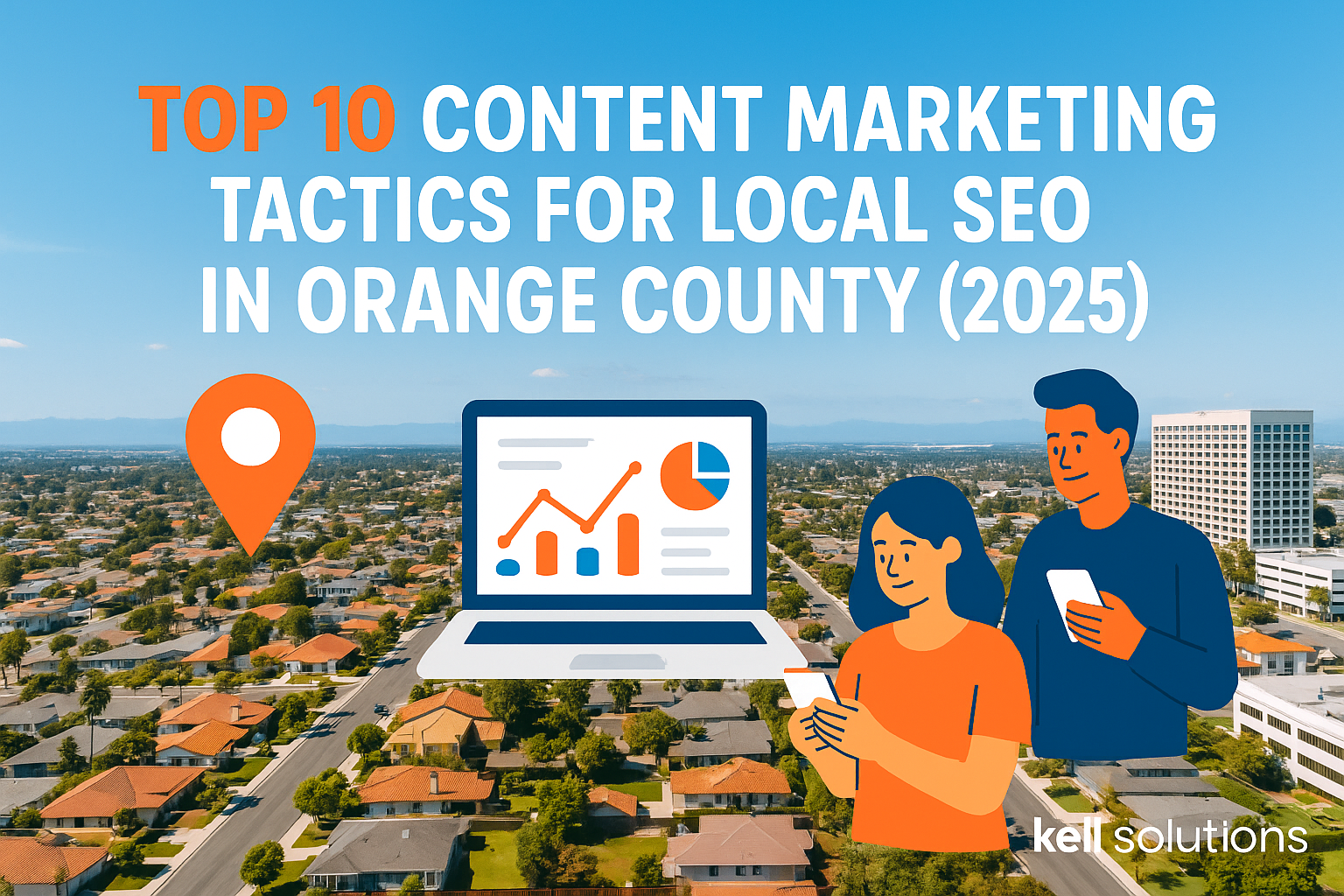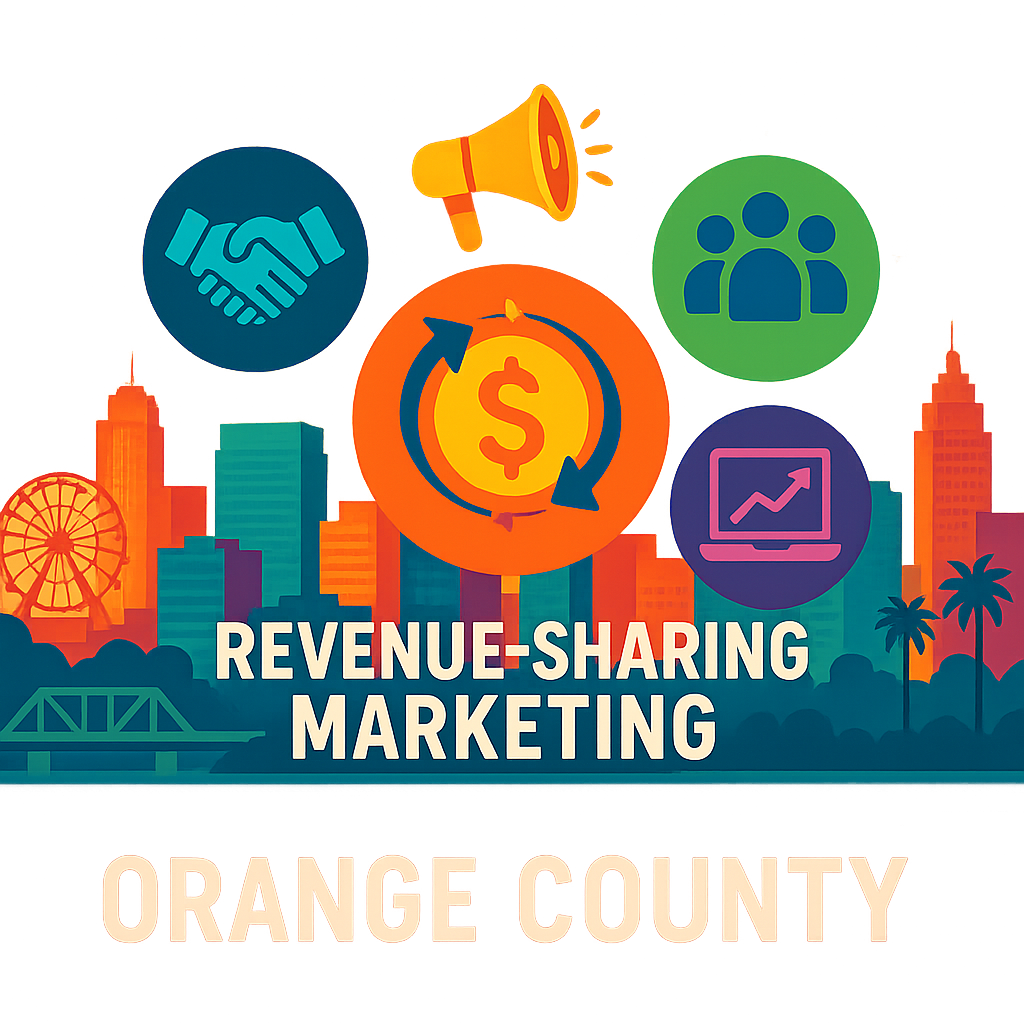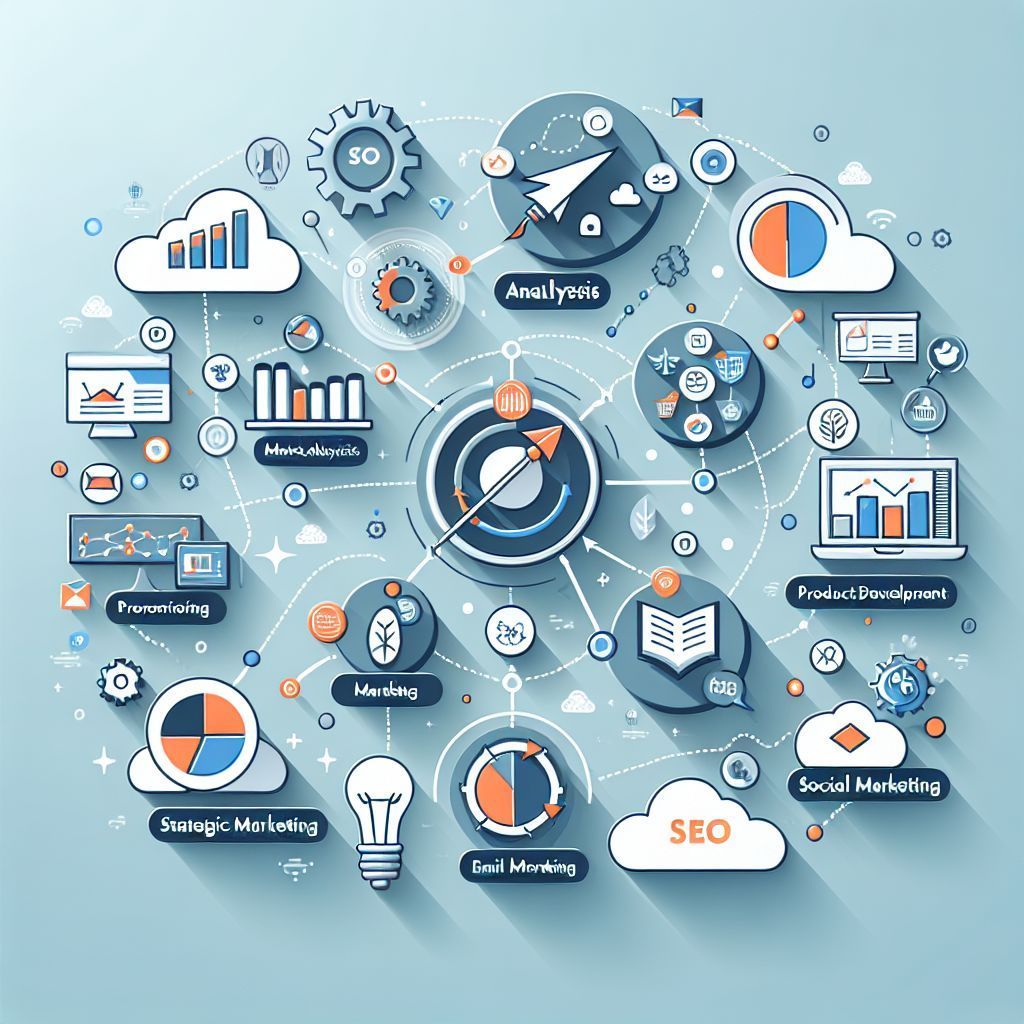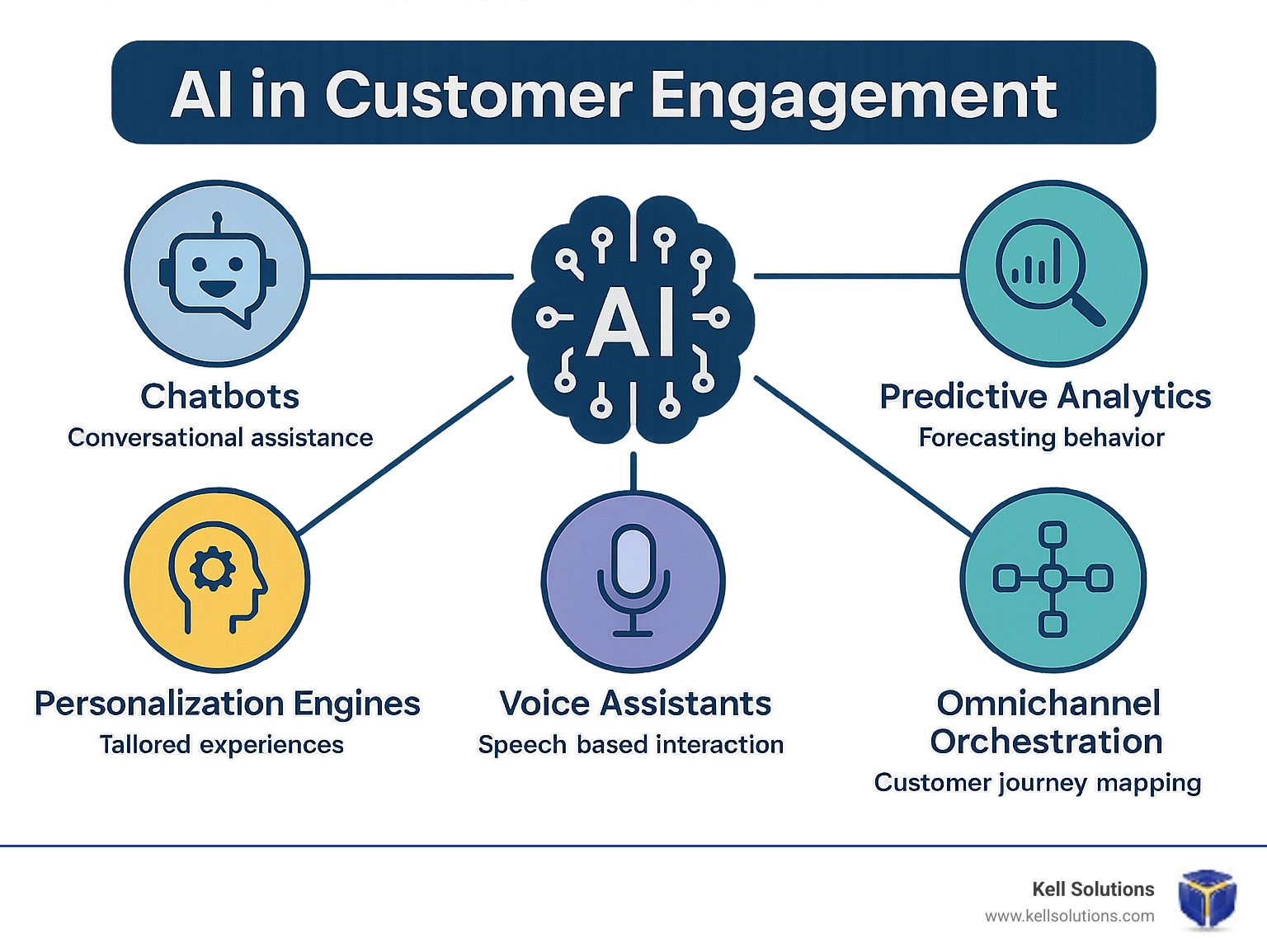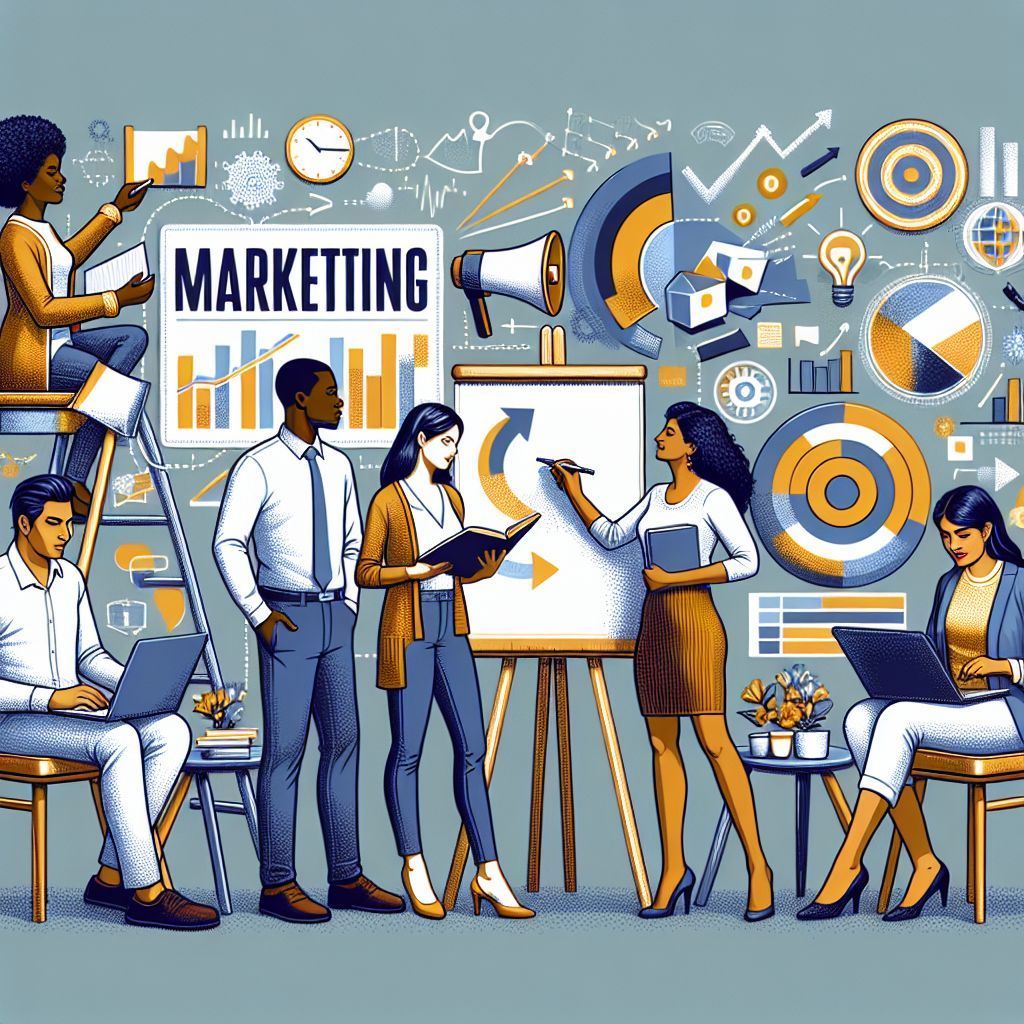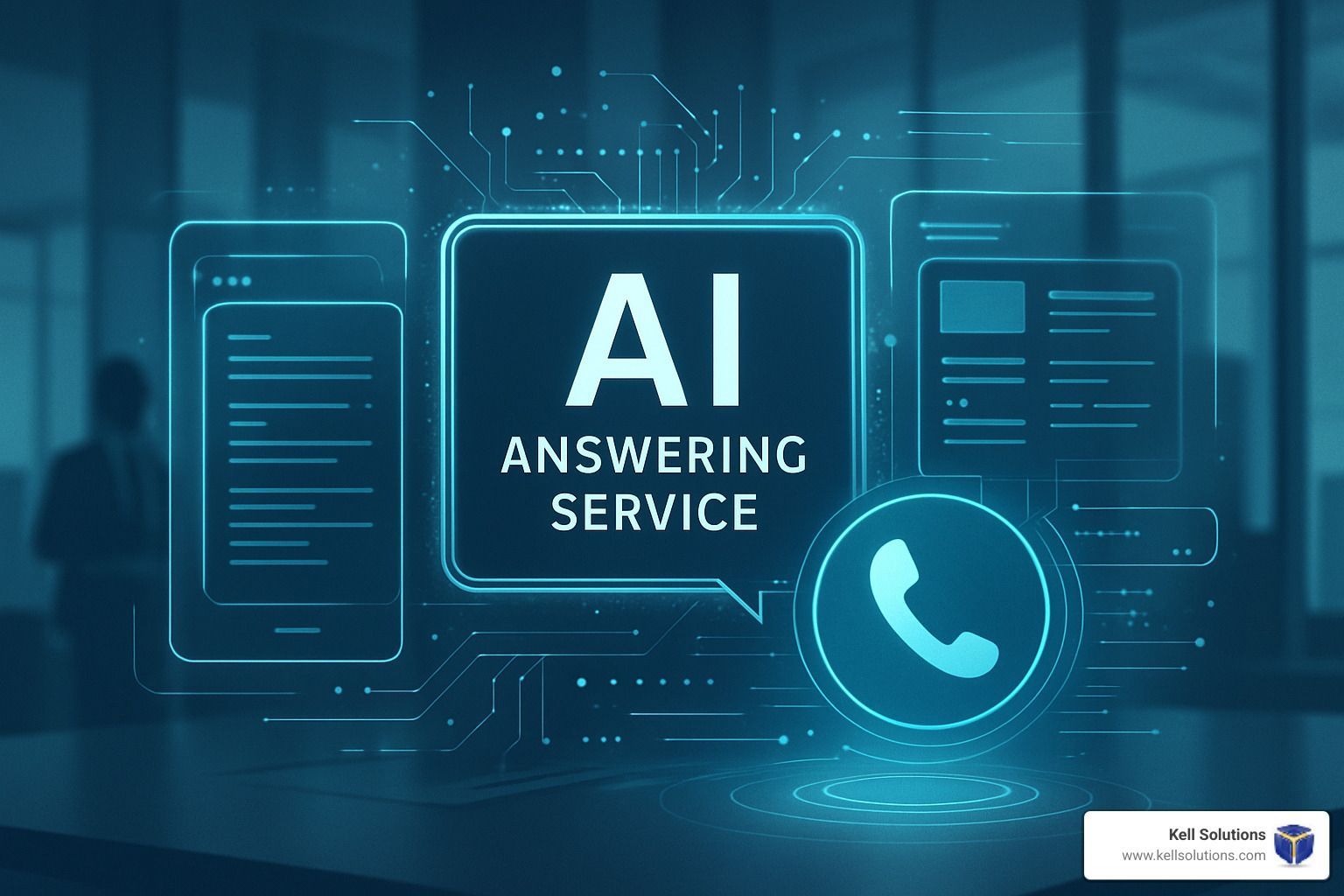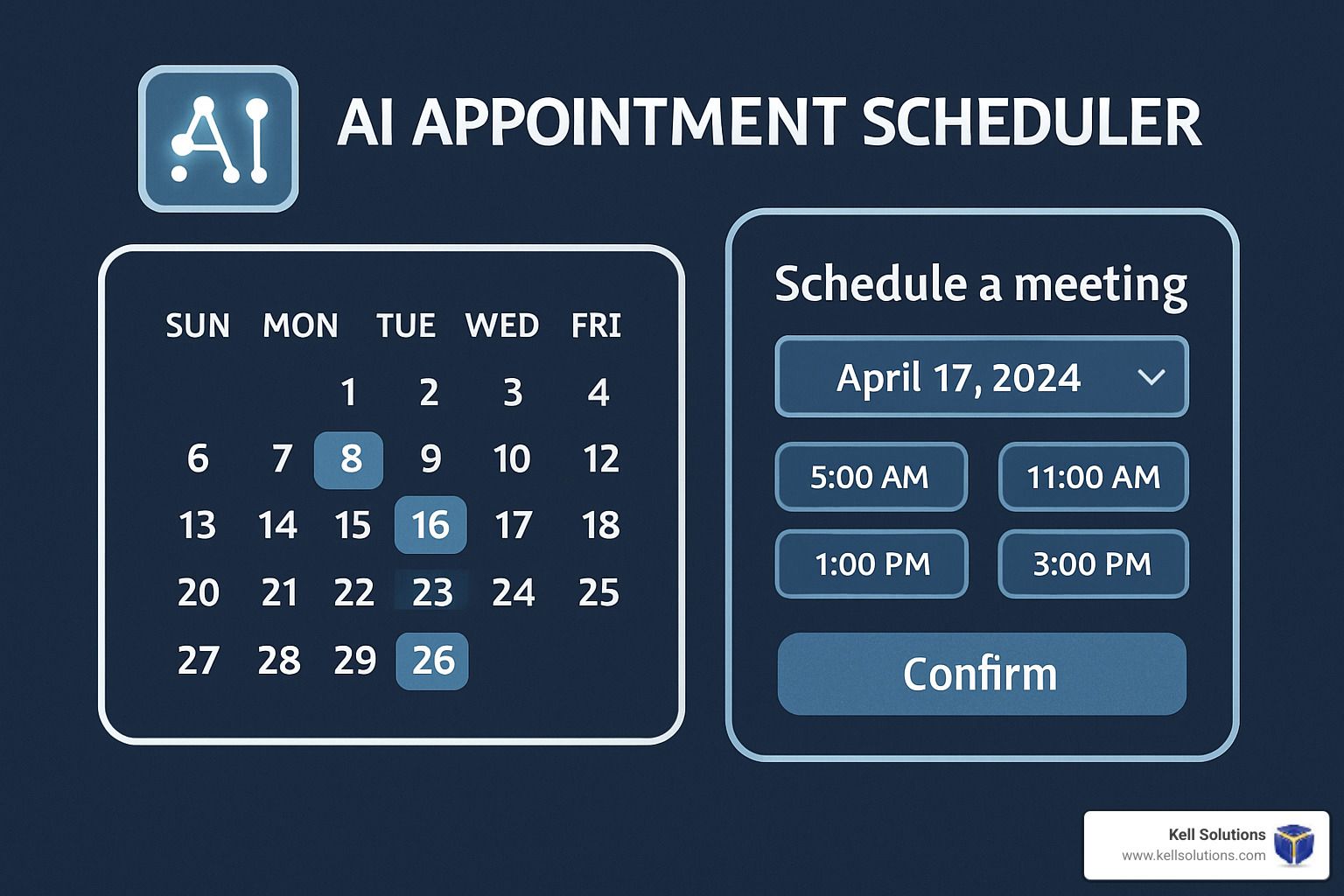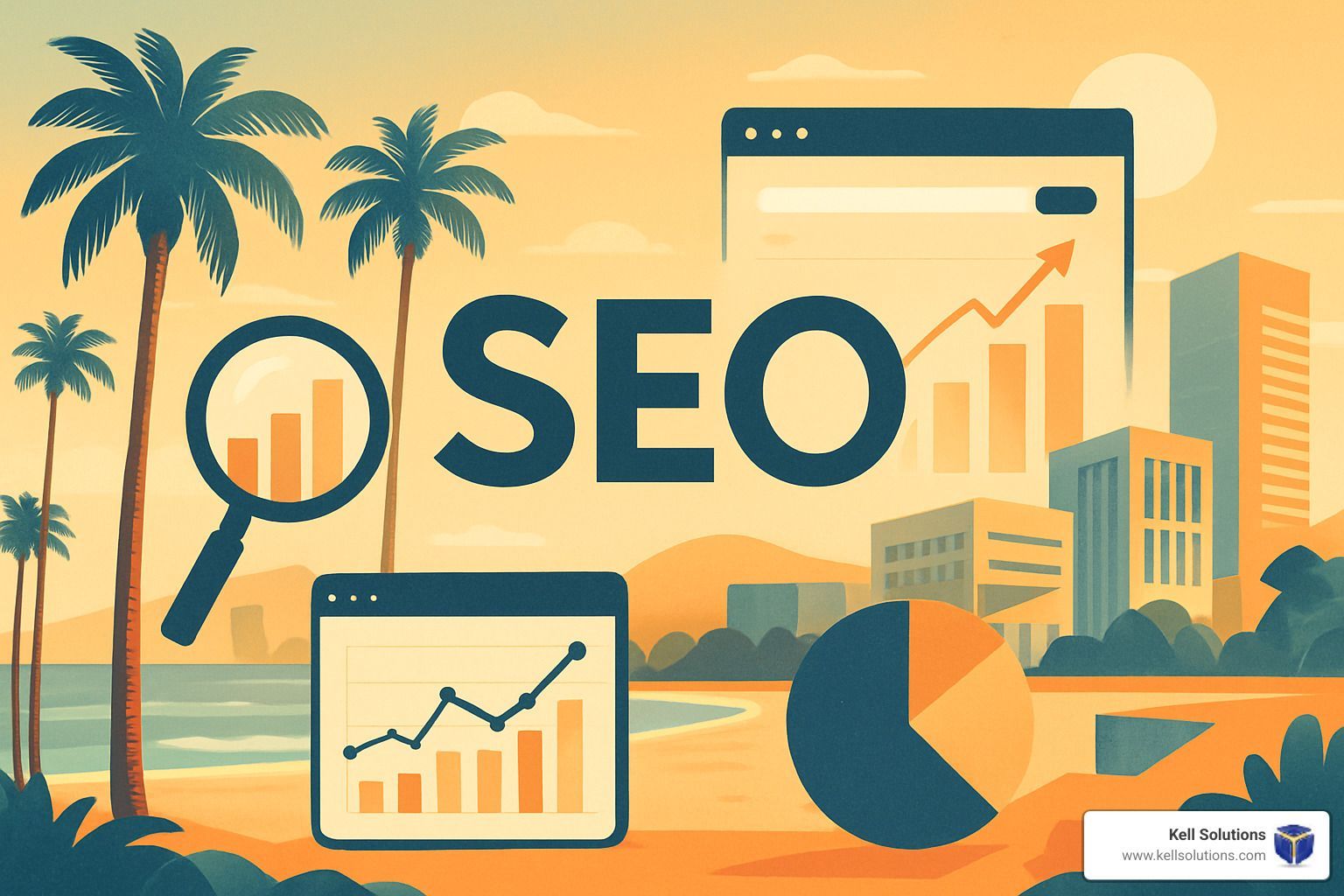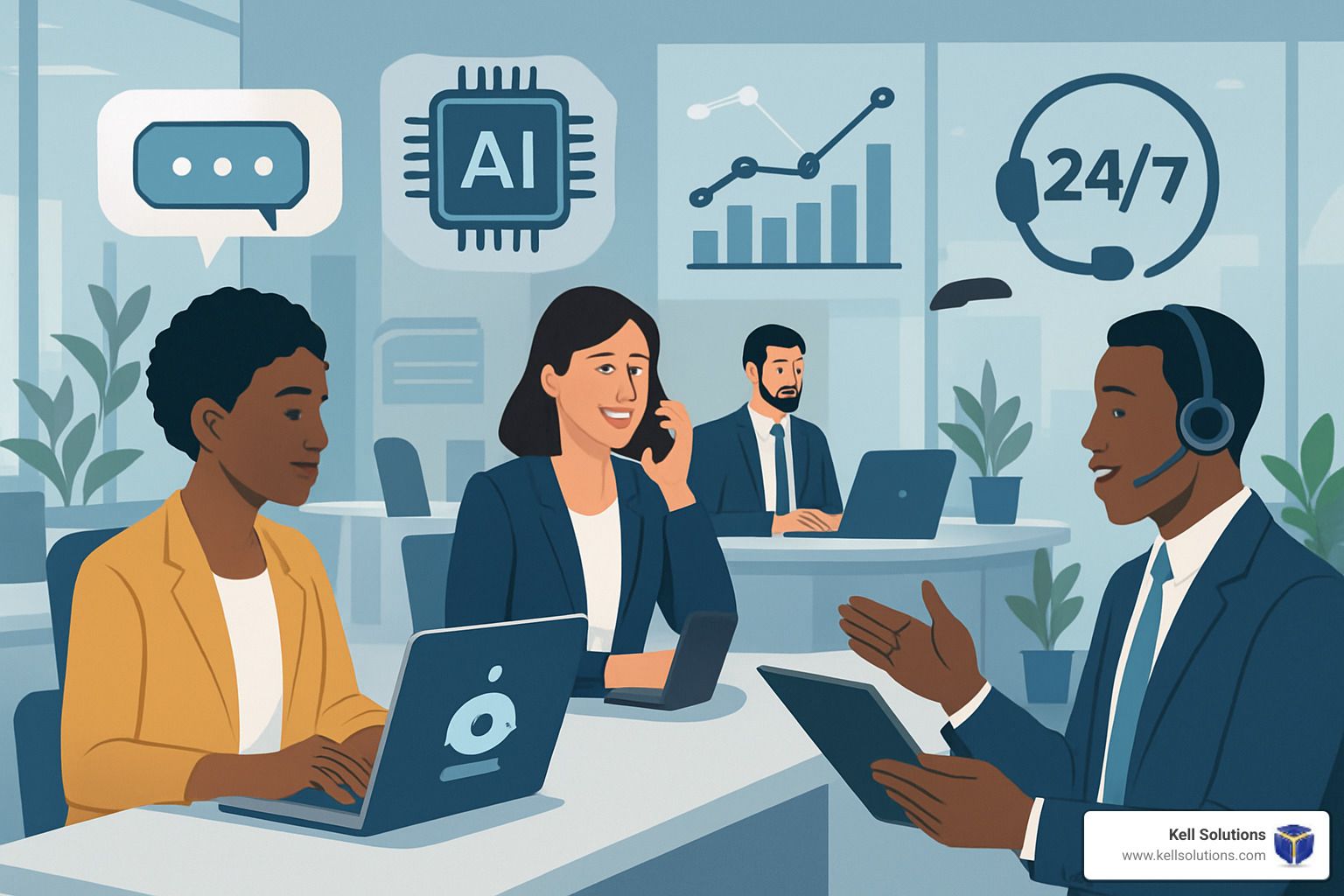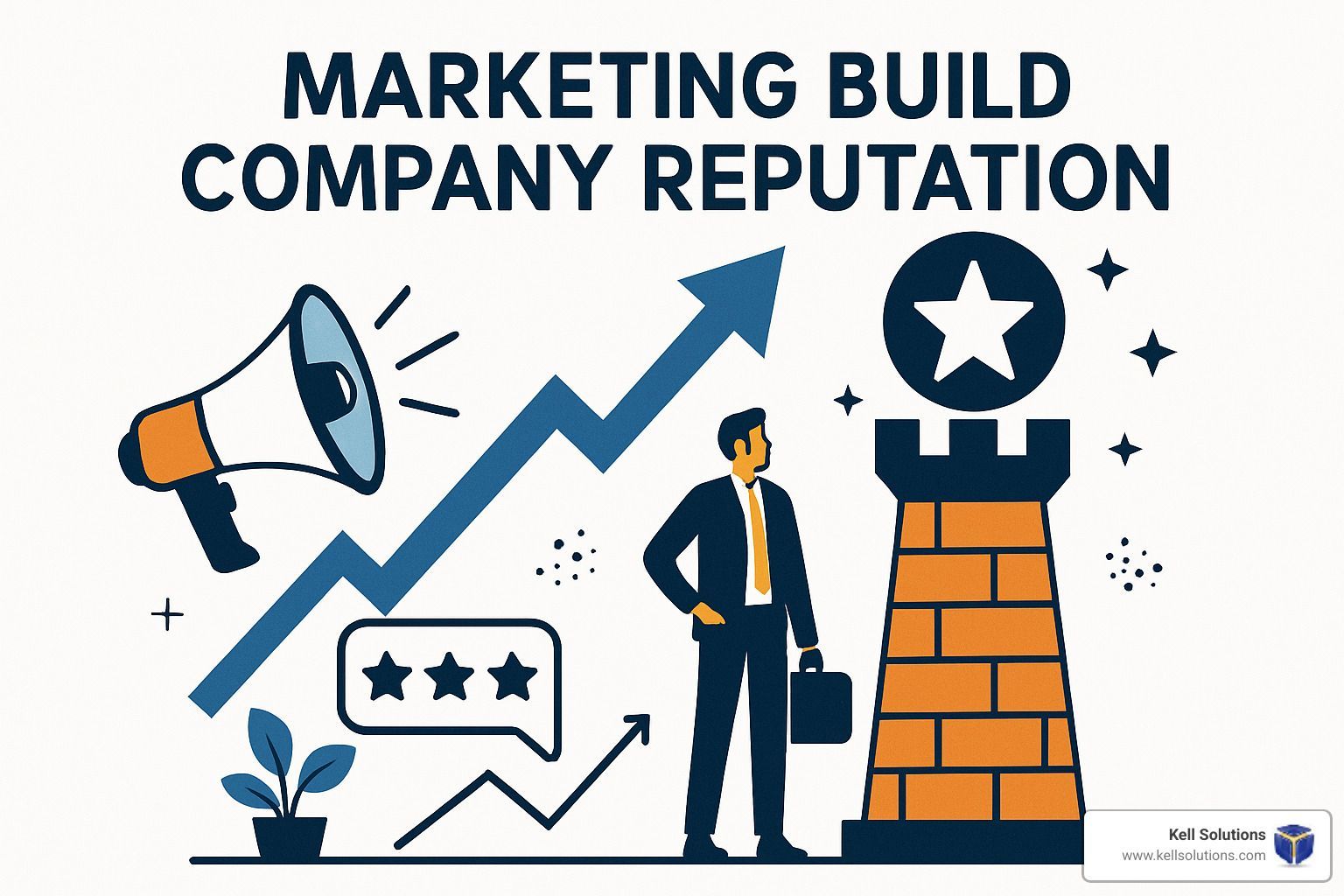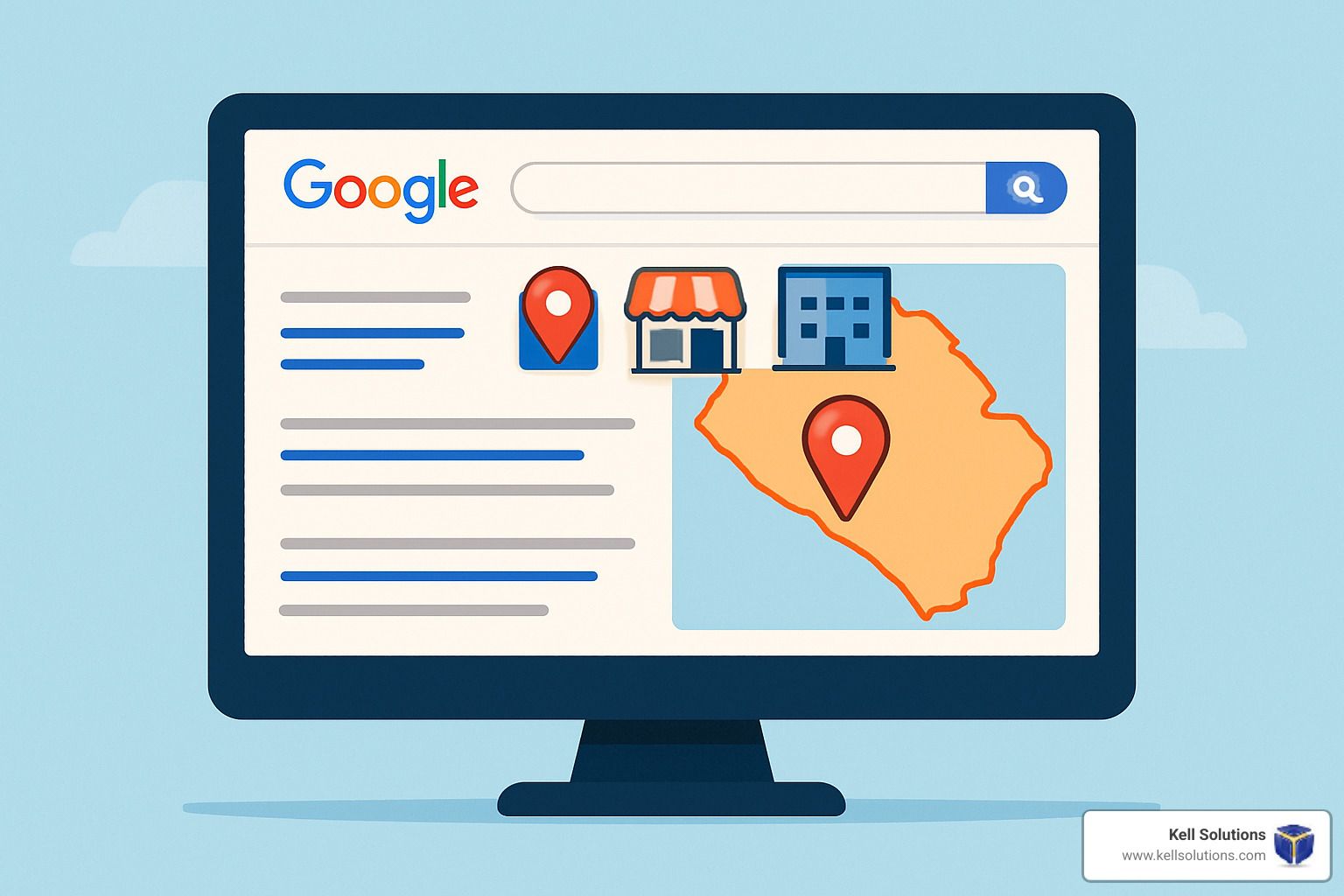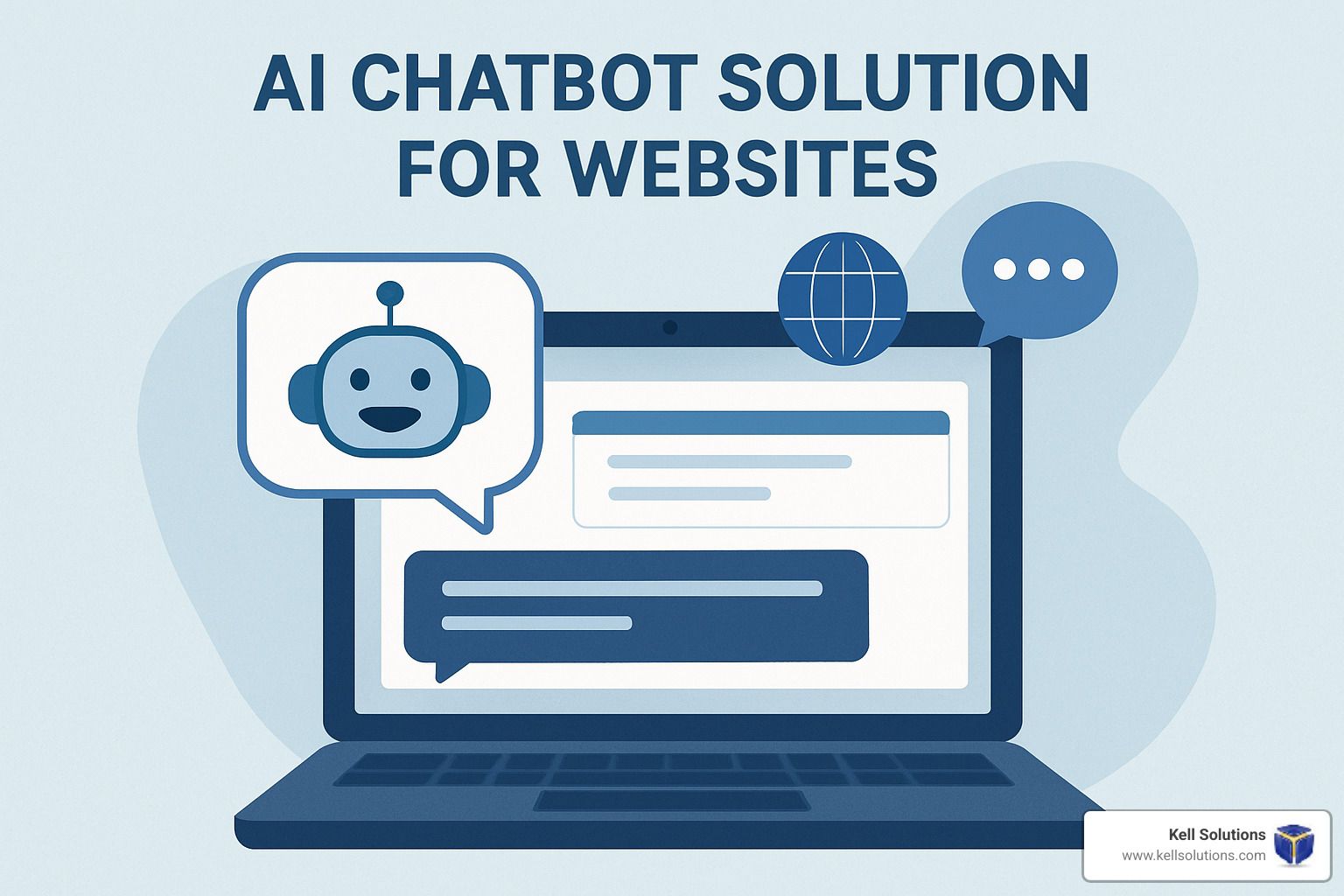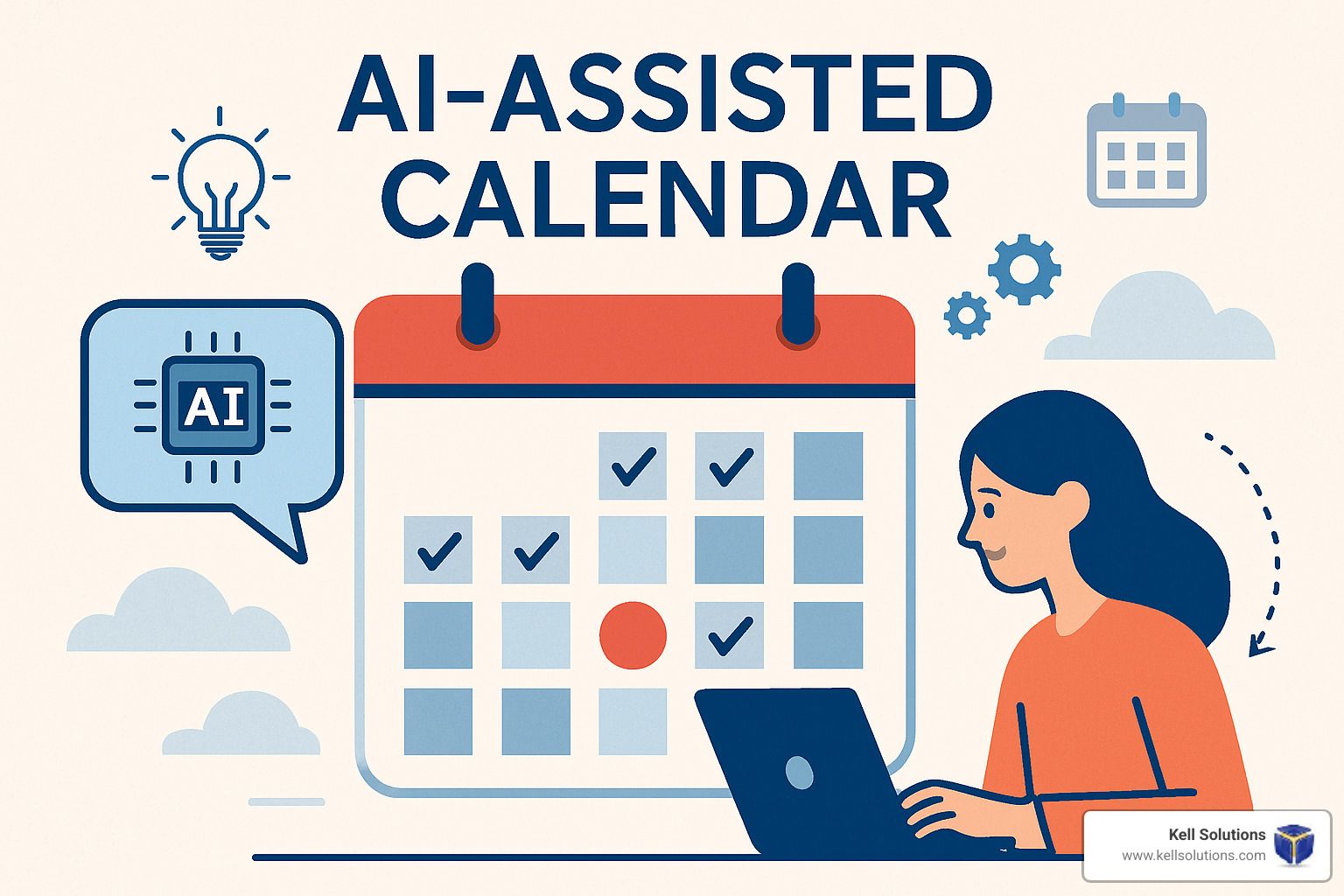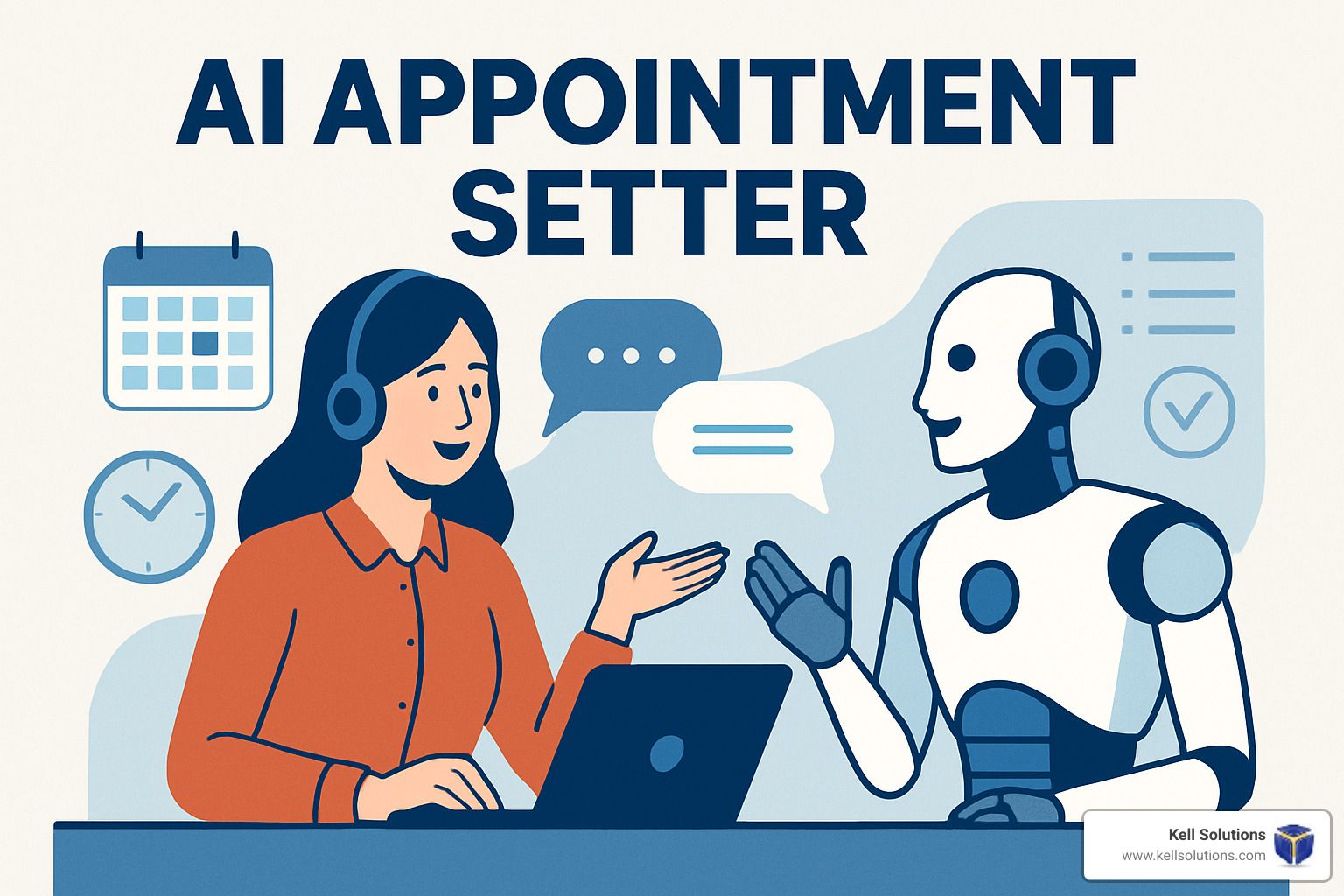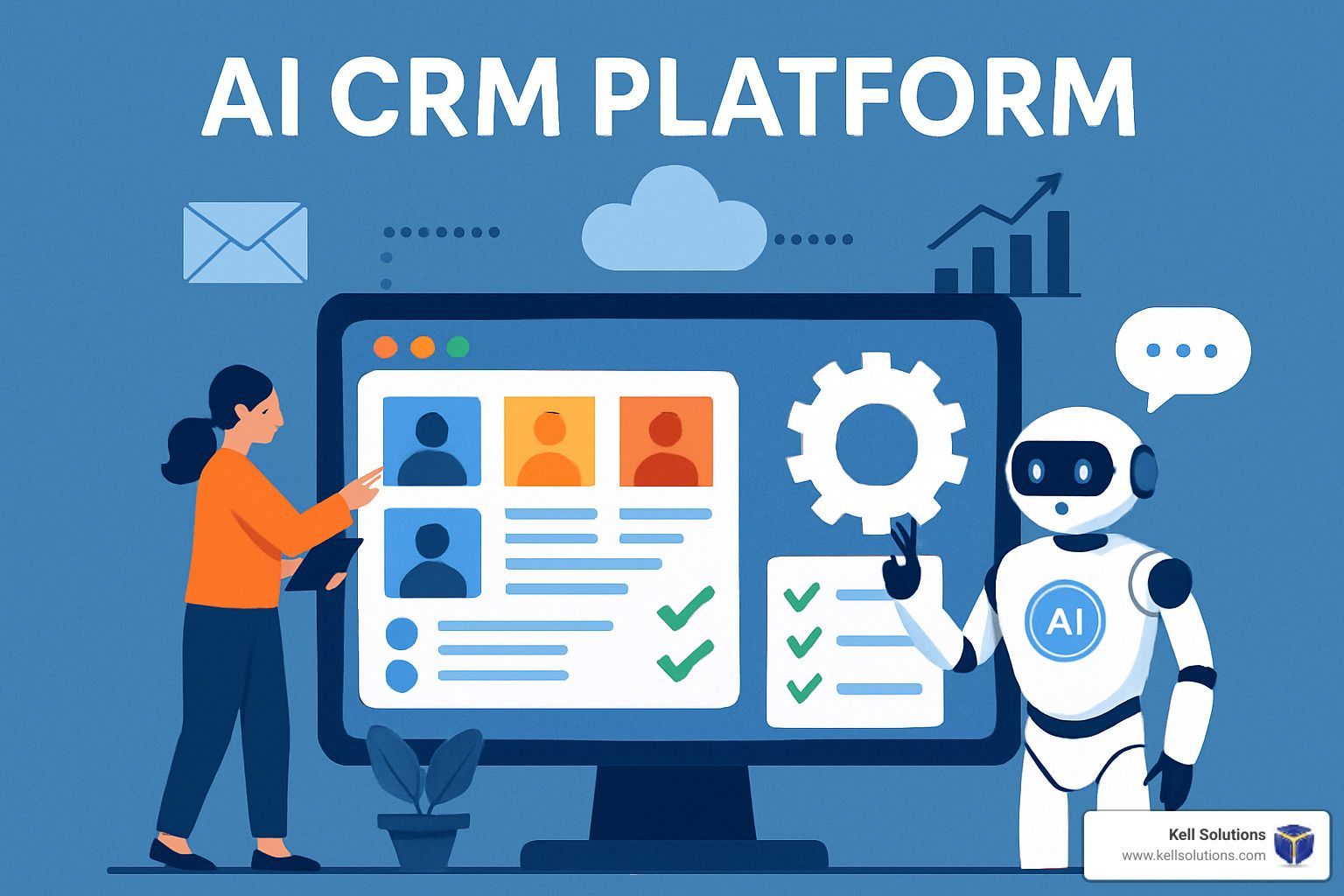Best AI Tools Guide for Small Business
Selecting and Implementing the Right AI Solutions

Key Takeaways
- AI tools for small businesses can reduce operational costs by up to 40% while improving customer response times and satisfaction rates.
- VoiceGenie AI offers 24/7 customer support capabilities that can transform how small businesses handle inquiries without increasing staffing costs.
- Modern AI solutions are specifically designed for non-technical users, with most requiring no coding skills and offering intuitive interfaces.
- The right AI marketing tools can generate content, design graphics, and manage social media at a fraction of the cost of hiring specialists.
- Small businesses that implement AI tools strategically can compete with larger enterprises despite limited resources and budgets.
Small businesses today face enormous pressure to do more with less. Between managing customer expectations, streamlining operations, and trying to grow with limited resources, it's no wonder many owners feel overwhelmed. Artificial intelligence tools have emerged as game-changers, offering affordable solutions as part of an AI business transformation that level the playing field against larger competitors.
The landscape of AI tools for small businesses has exploded in recent years, with options becoming increasingly accessible, affordable, and user-friendly. VoiceGenie AI by Kell Solutions stands out as a leader in transforming how small businesses handle customer communications, providing enterprise-level capabilities at small business prices. These tools aren't just fancy tech—they're practical solutions that deliver measurable ROI through time savings, improved customer experiences, and increased sales.
Customer Service AI That Handles Inquiries 24/7
The days of missing customer calls after hours or during busy periods are over. Modern AI customer service tools can engage with customers around the clock, answering questions, booking appointments, and qualifying leads while you focus on running your business. These solutions typically pay for themselves within months by capturing opportunities that would otherwise be lost.
Chatbots That Actually Help Your Customers
Today's AI chatbots bear little resemblance to the frustrating automated systems of years past. Tools like Intercom and ManyChat have evolved to handle complex conversations, understand context, and seamlessly hand off to human agents when necessary. The best solutions can be trained on your specific business information, enabling them to answer product questions, troubleshoot common issues, and even process simple transactions. Many small businesses report 70-80% of routine customer inquiries being successfully handled by these systems.
Email Automation Tools That Sound Human
Email remains a critical communication channel, but managing inbox overflow can consume hours of productive time. AI-powered email tools like Spark or Mailchimp's AI features can categorize, prioritize, and even draft responses to common inquiries. The most advanced systems learn from your communication style to create responses that sound authentically like you—not robotic templates.
These tools can reduce email management time by up to 60% while ensuring consistent, professional communication with customers and prospects.
VoiceGenie AI: The Virtual Receptionist That Never Sleeps
Phone calls remain a primary contact method for many customers, yet missed calls represent massive revenue leakage for small businesses. VoiceGenie AI provides a virtual receptionist that answers every call professionally, gathers information, and routes inquiries appropriately—whether that's scheduling appointments, answering FAQs, or taking detailed messages for your team. Unlike traditional answering services, VoiceGenie uses advanced natural language processing to create conversational experiences that callers actually enjoy. Small service businesses using this technology report capturing up to 40% more leads by eliminating missed calls and providing immediate assistance to potential customers.
Marketing AI Tools That Create Content Fast
Content creation has traditionally been a major bottleneck for small businesses without dedicated marketing teams. Modern AI tools have dramatically changed this equation, enabling even solo entrepreneurs to produce professional-quality content across multiple channels. The key advantage isn't just speed—it's the ability to maintain consistent messaging and quality without hiring expensive specialists.
- Blog content generators like Jasper and Copy.ai that can create draft articles based on your keywords
- Email marketing platforms with AI-powered subject line optimization and content suggestions
- SEO tools that identify content opportunities and help optimize existing materials
- Social media content planners that suggest posting schedules and content themes
- Analytics tools that identify which content resonates with your audience
The most effective approach combines AI-generated drafts with human refinement, leveraging technology to handle the heavy lifting while adding your unique business perspective. This hybrid approach typically reduces content creation time by 50-70% while maintaining authentic brand voice.
Copy That Converts Without Hiring a Writer
Professional copywriting has traditionally been expensive and time-consuming, putting it out of reach for many small businesses. AI writing assistants like Jasper, Copy.ai, and even ChatGPT can now generate surprisingly effective marketing copy for websites, emails, and advertisements. The most sophisticated tools can be trained on your brand voice and target audience characteristics to create copy that resonates with your specific customers.
Small business owners report particular success using these tools for creating first drafts of product descriptions, email newsletters, and social media posts. While the output typically requires some editing, the time savings compared to starting from scratch are substantial—often reducing writing time by 60-75% while maintaining quality.
For best results, provide these tools with clear information about your audience, specific product benefits, and examples of messaging that has worked well in the past. The AI will use these inputs to generate copy that speaks directly to customer pain points and motivations.
Image Generation That Saves Thousands on Design
Professional design work has historically been a significant expense for small businesses looking to create polished visuals. Tools like Midjourney, DALL-E, and Canva's AI Image Generator now enable business owners to create stunning custom imagery for websites, social media, and marketing materials with simple text prompts. A task that once required hours from a professional designer costing $75-150 per hour can now be accomplished in minutes for a fraction of the cost.
The most effective approach is to start with a clear vision of what you need and provide detailed prompts. For example, instead of requesting "a picture of a café," specify "a warm, inviting café interior with rustic wooden tables, morning sunlight streaming through windows, and steaming coffee cups on tables." This level of detail helps the AI generate images that truly match your brand aesthetic and marketing needs.
Video Creation Tools That Work in Minutes
Video content drives engagement across platforms, but production has traditionally required specialized skills and equipment. AI video tools like Synthesia, Lumen5, and InVideo now allow small businesses to create professional-looking videos without cameras, microphones, or editing expertise. These platforms can transform text scripts into engaging videos featuring AI presenters or animated elements, complete with background music and captions.
Many small businesses are using these tools to create product demonstrations, how-to guides, and social media content that would otherwise be prohibitively expensive to produce. A particularly valuable application is creating customized client presentations or proposals—a task that previously might have taken hours can now be accomplished in 15-20 minutes, with results that impress potential customers.
Social Media Managers That Post For You
Maintaining a consistent social media presence across multiple platforms can be overwhelming for small business owners. AI-powered tools like Buffer, Hootsuite with AI capabilities, and Later now go beyond simple scheduling to actually suggest optimal posting times, recommend content types, and even generate post captions. The most advanced options can analyze which content performs best with your specific audience and automatically adjust your strategy accordingly.
These tools shine in their ability to maintain consistent posting schedules even when business owners are busy with operations. Many allow you to create a content calendar months in advance, then automatically adapt posting times based on when your audience is most active. Small businesses using these tools report up to 40% higher engagement rates compared to manual posting approaches.
Financial Tools That Predict Cash Flow
Cash flow remains the lifeblood of small businesses, yet many owners rely on basic spreadsheets or intuition to forecast financial health. Modern AI-powered financial tools can analyze historical patterns, seasonal trends, and pending transactions to predict cash positions with remarkable accuracy. This foresight allows businesses to proactively manage potential shortfalls, make informed investment decisions, and negotiate from a position of strength with suppliers and partners.
QuickBooks AI Features You're Not Using
Many small businesses already use QuickBooks but fail to leverage its increasingly powerful AI capabilities. Beyond basic bookkeeping, QuickBooks now offers AI-driven invoice detection that automatically captures and categorizes expenses from photos of receipts. The platform's cash flow prediction feature uses machine learning to forecast your business's financial position 90+ days into the future, helping prevent unexpected shortfalls.
The accounts payable intelligence features can also identify potential duplicate payments and flag unusual transactions that might indicate errors or fraud. Perhaps most valuable is the tax categorization system that automatically assigns transactions to the appropriate tax categories, potentially saving thousands in accounting fees and reducing audit risks.
Invoice Management That Chases Late Payments
Late payments create significant cash flow challenges for small businesses, yet many owners are uncomfortable with aggressive collection efforts. AI-powered invoice management tools like Chaser, YayPay, and FreshBooks' automated collections can tactfully follow up on overdue invoices with increasingly urgent but professional reminders. These systems learn which approaches work best with specific customers and adapt their communication style accordingly.
The most sophisticated solutions can predict which invoices are likely to be paid late based on historical patterns and client behavior, allowing businesses to proactively manage potential cash flow disruptions. Small businesses using these tools report reducing days sales outstanding (DSO) by 20-30% on average, dramatically improving cash position without damaging customer relationships.
Project Management AI That Keeps Your Team On Track
Managing projects effectively becomes increasingly challenging as small businesses grow, particularly with remote or hybrid teams. AI-enhanced project management tools provide visibility, accountability, and predictive insights that help prevent delays before they occur. These platforms can identify bottlenecks, suggest resource reallocations, and even predict which projects are at risk of missing deadlines based on current progress.
The true power of these systems lies in their ability to learn from your team's working patterns and project history. Over time, they become increasingly accurate at estimating how long specific tasks will take for particular team members, helping you create realistic timelines that clients can trust. This capability alone can dramatically improve client satisfaction and retention.
Tools That Schedule Tasks Automatically
Task scheduling and prioritization consume valuable time that could be spent on revenue-generating activities. AI-powered project management tools like Asana, Monday.com, and ClickUp now include intelligent features that can automatically assign tasks based on team workload, prioritize activities based on deadlines and dependencies, and even suggest optimal scheduling windows. These systems analyze historical completion patterns to make increasingly accurate time estimates.
Small businesses report particular value in the ability to identify resource conflicts before they cause delays. For example, when these systems detect that a team member has been assigned more work than they can reasonably complete in a given timeframe, they proactively suggest redistributions or timeline adjustments. This proactive approach prevents the cascading delays that often plague small business projects.
Meeting Assistants That Take Notes For You
Meetings are essential for coordination but can consume excessive time between preparation, participation, and follow-up. AI meeting assistants like Otter.ai, Fireflies.ai, and Zoom's built-in AI features can transcribe conversations, identify action items, and even create summary notes of key decisions. These tools enable team members to fully engage in discussions rather than frantically taking notes, while ensuring nothing important falls through the cracks.
The most advanced solutions can integrate directly with your project management system, automatically creating tasks and assigning them to relevant team members based on meeting discussions. Small businesses using these tools report 25-30% reductions in meeting time and dramatically improved follow-through on commitments made during discussions.
Analytics Tools That Spot Hidden Opportunities
Data analysis has traditionally required specialized skills and significant time investments, putting it beyond the reach of many small businesses. Modern AI-powered analytics platforms can automatically surface actionable insights from your business data without requiring technical expertise. These tools connect to your existing systems—from e-commerce platforms to CRM software—and identify patterns, anomalies, and opportunities that might otherwise remain hidden.
Customer Behavior Insights Without a Data Scientist
Understanding customer behavior patterns traditionally required expensive market research or data analysis expertise. Tools like Google Analytics with AI insights, Hotjar, and Mixpanel now provide sophisticated customer journey analysis that automatically identifies conversion obstacles, engagement opportunities, and customer segments with untapped potential. These platforms can recognize patterns that would be nearly impossible to spot manually, such as specific user paths that lead to higher lifetime value or subtle website elements that cause abandonment.
The actionable nature of these insights makes them particularly valuable for small businesses. Rather than simply presenting data, these tools increasingly make specific recommendations: "Adding customer reviews to this product page could increase conversions by approximately 15%" or "Customers who purchase this product are 3x more likely to return if contacted within 7 days." This prescription-oriented approach means even non-technical business owners can quickly implement high-impact improvements.
Competitor Analysis That Gives You The Edge
Staying ahead of competitors requires constant vigilance that most small businesses simply can't maintain manually. AI-powered competitive intelligence tools like SEMrush, Crayon, and Kompyte automatically track competitor activities across websites, social media, advertising, and pricing. These platforms alert you to significant changes in competitor strategies and identify gaps in the market that represent opportunities for your business.
Many small businesses find particular value in the pricing intelligence features that identify when competitors adjust their pricing models or offer promotions. This awareness allows for timely competitive responses rather than discovering customer losses after the fact. Similarly, content gap analysis can reveal topics competitors are successfully targeting that your business has overlooked, enabling more strategic content development.
Get Started: Implement These Tools Without Breaking The Bank
The proliferation of AI tools for small businesses has created both opportunity and confusion. With hundreds of options available, many business owners feel overwhelmed by choices and concerned about costs. The good news is that most modern AI platforms offer flexible pricing models designed specifically for small businesses, often with free trials or "freemium" tiers that allow you to test capabilities before committing to paid plans.
Free Trials and Tier Options Worth Your Time
Almost every AI tool mentioned in this guide offers some form of free trial or entry-level plan that provides real business value. These options allow you to evaluate multiple solutions without financial commitment. When comparing platforms, look beyond the initial price point to understand scaling costs as your business grows. Many tools offer significant discounts for annual commitments, which can reduce costs by 20-25% compared to monthly billing.
The most cost-effective approach typically involves starting with one high-impact tool in each major category (customer service, marketing, financial, etc.) rather than attempting to implement multiple solutions in the same area. This focused approach allows you to develop expertise with each platform before expanding your AI toolkit. Many small businesses find that a budget of $100-300 monthly can fund a surprisingly comprehensive AI ecosystem when selecting tools strategically.
The 3-Step Implementation Plan
Successful AI implementation follows a consistent pattern regardless of business type or tool category. Start by identifying your most pressing operational pain points—areas where your team spends excessive time on repetitive tasks or where opportunities are being missed due to capacity limitations. These high-friction areas typically offer the fastest ROI for AI implementation. Next, select tools with proven track records in your industry and take advantage of free trials to evaluate real-world performance. Finally, commit to a 30-day learning curve during which you actively refine the system through regular feedback and adjustments.
This methodical approach prevents the common mistake of abandoning potentially valuable tools before they've been properly configured for your specific business needs. Remember that most AI systems improve dramatically after they've been trained on your specific data and requirements—the performance difference between week one and week four is often substantial.
How to Train Your Team (Even If They're Tech-Phobic)
Employee resistance often undermines AI implementation efforts, particularly in small businesses with established workflows. The most successful adoption strategies focus on demonstrating immediate personal benefits to team members rather than abstract business advantages. Show specifically how the technology will eliminate frustrating tasks, reduce after-hours work, or help them achieve performance targets more easily.
For team members who express technology concerns, implement a buddy system where more tech-comfortable employees provide peer support during the initial learning period. Most importantly, frame AI tools as assistants that handle routine work so humans can focus on more creative, strategic, or personally satisfying aspects of their roles. This framing significantly reduces fear of replacement while emphasizing the collaborative nature of human-AI workflows.
Real Small Business Success With AI: Not Just Hype
The transformative potential of AI for small businesses is not theoretical—it's being demonstrated daily across industries and business models. A landscaping company in Colorado implemented VoiceGenie AI to handle after-hours calls and saw a 43% increase in booked appointments within the first month, primarily from potential customers who would have moved on to competitors if required to leave voicemails. A boutique accounting firm used AI writing tools to create client-specific tax planning guides in minutes rather than hours, allowing them to provide personalized advisory services to 3x more clients without increasing staff.
40% More Leads With Less Work: The Numbers Don't Lie
The quantifiable benefits of AI implementation typically appear in three areas: time savings, error reduction, and opportunity capture. Small businesses consistently report 15-25 hours of weekly administrative time reclaimed through automation of routine tasks like scheduling, data entry, and basic customer communications. Error rates in critical processes like invoicing and order processing typically drop by 30-50% when AI validation tools are implemented. Perhaps most significantly, businesses using AI for lead capture and nurturing report 35-45% increases in qualified opportunities, primarily through improved response times and consistent follow-up.
"We were missing about 30% of our calls during busy periods, which meant turning away thousands in potential business each month. After implementing VoiceGenie AI, we haven't missed a single call, and our appointment bookings have increased by 42%. The system paid for itself in the first three weeks." — Sarah L., Home Services Business Owner
Your AI Roadmap: Start Small, Scale Smart
The most successful small business AI implementations follow a crawl-walk-run approach that builds confidence and capabilities over time. Begin with a single high-impact application that addresses a clear pain point, master that implementation, then expand methodically. This measured approach prevents the overwhelm that often accompanies technology transformations and allows for proper integration with existing workflows before adding complexity.
Remember that AI tools represent a partnership rather than a complete solution—they handle routine tasks and provide insights, but your business expertise remains the essential ingredient for success. The businesses gaining the greatest advantage from AI are those that view it as an amplifier of human capabilities rather than a replacement for human judgment.
Frequently Asked Questions
As small businesses increasingly explore AI solutions, several common questions emerge about implementation, costs, and practical considerations. The following responses address the most frequent concerns based on real-world experiences of businesses that have successfully integrated AI into their operations.
Understanding these fundamentals can help you avoid common pitfalls and set realistic expectations for your AI implementation journey.
How much do these AI tools typically cost for a small business?
AI tool pricing varies widely based on capabilities and scale, but most solutions offer small business-friendly options. Entry-level AI chatbots typically start at $20-50 monthly, while comprehensive customer service solutions like VoiceGenie AI range from $97-297 monthly depending on call volume and features. Content creation tools generally cost $29-99 monthly for basic plans, while advanced financial analytics platforms may run $100-250 monthly. Many providers offer significant discounts (20-30%) for annual commitments, and most allow you to start with basic capabilities and expand as needed without losing your investment in setup and configuration.
Do I need technical skills to implement AI in my business?
Modern AI solutions are specifically designed for non-technical users, with most requiring no coding skills and offering intuitive interfaces. The implementation process typically involves connecting the AI to your existing data sources (such as your website, product catalog, or customer database) through simple integrations or file uploads. Many platforms offer templates and wizards that guide you through setup, and vendor support teams can typically assist with more complex configurations.
The technical requirements have decreased dramatically in recent years as vendors recognize that small business adoption depends on simplicity and accessibility. The following skills are generally sufficient for successful implementation:
- Basic computer navigation and internet browsing abilities
- Familiarity with your existing business software
- Ability to articulate your business processes clearly
- Willingness to follow tutorial videos or step-by-step guides
- Patience during the initial training and refinement period
If your business uses particularly specialized software or has complex workflows, you might benefit from vendor-provided setup assistance, which many companies offer as part of their onboarding process or for a modest one-time fee.
Can AI tools really replace human employees?
- AI excels at handling repetitive, rule-based tasks with predictable inputs
- It's best viewed as augmenting human capabilities rather than replacing them
- Most successful implementations redirect human talent to higher-value activities
- The highest ROI comes from human-AI collaboration, not complete automation
- Customer-facing AI typically works alongside human team members rather than replacing them entirely
The most effective approach sees AI handling the routine 80% of tasks that follow predictable patterns, while humans manage the complex 20% that require creativity, empathy, or judgment. This division allows businesses to scale operations without proportional staffing increases while improving both employee satisfaction and customer experiences.
In practice, small businesses rarely reduce headcount after AI implementation—instead, they typically grow revenue significantly with the same team size by eliminating bottlenecks and capacity constraints.
The human element remains essential for relationship building, complex problem-solving, and strategic decision-making—areas where AI serves as a supportive tool rather than a replacement.
How do I know which AI tool to try first for my specific business?
The highest-impact starting point typically addresses your most significant operational bottleneck or revenue leakage point. For service businesses that depend on appointment bookings, customer communication tools like VoiceGenie AI often deliver the fastest ROI by capturing previously missed opportunities. Retailers and e-commerce businesses frequently see the greatest initial benefits from marketing automation tools that improve lead nurturing and conversion rates. Professional service firms typically start with document automation or content generation tools that dramatically reduce time spent on routine communications and paperwork.
To identify your optimal starting point, track how you and your team spend time for one week, noting repetitive tasks that consume disproportionate resources relative to their strategic value. Similarly, review recent customer interactions to identify points where delays or capacity constraints negatively impacted the customer experience. The intersection of these two analyses usually reveals clear priorities for initial AI implementation.
Remember that starting with a focused, high-impact application builds confidence and demonstrates value quickly, creating momentum for broader adoption. Most small businesses find that success with an initial tool naturally highlights the next priority area for AI enhancement.
Are there privacy concerns with using AI for customer data?
Data privacy considerations are important when implementing AI tools, particularly those that process customer information. Reputable AI providers maintain strong security practices and comply with relevant regulations like GDPR and CCPA. When evaluating solutions, look for vendors that clearly explain their data handling practices, offer data processing agreements, and provide options for data residency (where your information is physically stored).
Most quality AI platforms allow you to control what data is shared and for what purposes. For particularly sensitive industries like healthcare or financial services, specialized AI solutions exist that offer enhanced compliance features and security certifications. The key is understanding exactly what information your chosen tools access and how that data is protected both during transmission and storage.
From a customer perspective, it's important to maintain transparency about AI usage, particularly in direct interactions. Many businesses include simple disclosures in their terms of service and privacy policies, and some actively promote their AI capabilities as a service enhancement rather than hiding them. This transparency builds trust while setting appropriate expectations for the customer experience.
With proper vendor selection and governance, AI tools can actually enhance your data security posture by reducing human access to sensitive information and providing consistent policy enforcement.
Small businesses are increasingly finding that AI tools aren't just nice-to-have luxuries—they're essential competitive necessities in a business landscape where efficiency, responsiveness, and scalability determine success. By starting with high-impact applications, focusing on measurable outcomes, and taking a strategic implementation approach, even the smallest organizations can harness AI capabilities that were previously available only to enterprise-level competitors.
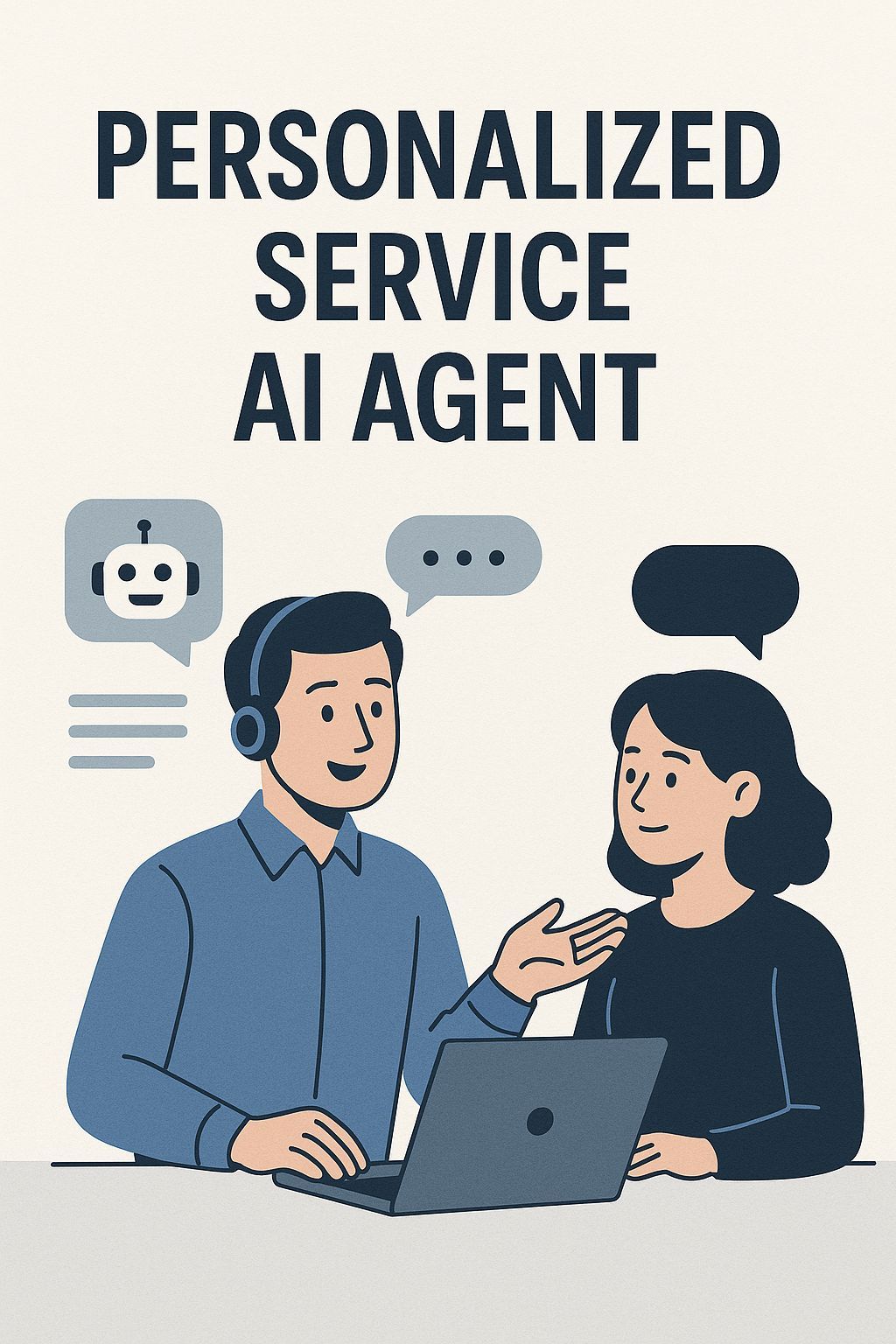

Orange County HVAC Google AI Overview Domination: 7 Proven Strategies to Capture Featured AI Results




